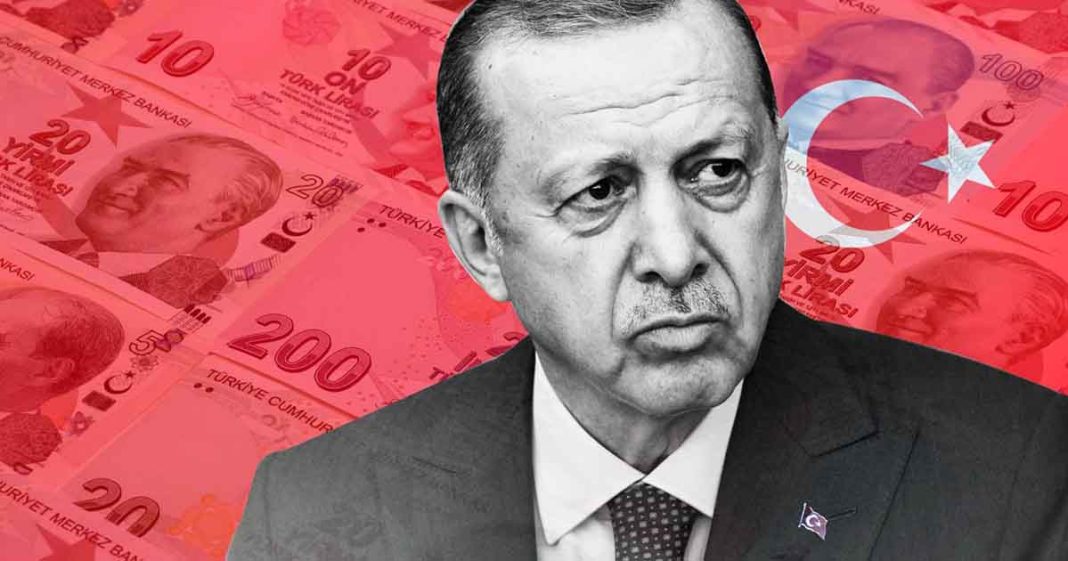Minutes before President Tayyip Erdogan delivered a speech renouncing high interest rates once again, the Turkish central bank said it was selling dollars to support the lira. The bank has $25 billion of net reserves as of November, down from $28 billion the month before. But that includes another $48 billion of swaps from local banks, without which reserves are firmly in negative territory.
It’s a flawed bid to support Erdogan’s ultra-loose monetary policy, which has caused the lira to fall more than 40% versus the dollar this year. Propping up the currency might slow Turkey’s descent into hyperinflation, but the country’s pot of dollars risks running out.
Read more: UAE announces $10 billion Turkey investment funds
The bank sold some $128 billion to steady the lira in 2019-2020 and still had to hike rates. When net reserves were at $28 billion in August 2020, it took just five months to run them down to $11 billion – the lowest since at least 2003. The lower reserves fall, the more likely another depreciation becomes. Erdonomics is a pricey endeavour.
Turkey’s lira crashing
Once again, Turkey is in the throes of a currency crisis. The lira has lost more than 40 percent of its value against the United States dollar this year, making it the worst-performing of all emerging market currencies.
Turkey's Erdogan appoints Nureddin Nebati as finance minister following Turkish lira crashing 27% in the last month alone https://t.co/KCfkkQtKmD via @Reuters pic.twitter.com/MT9pe1aGKx
— 🇪🇺 🇲🇨🇨🇭Dan Popescu 🇫🇷🇮🇹🇷🇴 (@PopescuCo) December 1, 2021
In November alone, the lira lost nearly 30 percent of its value against the dollar – landing it well into currency crash territory.
The rapid slide has ushered in a wave of dollar hoarding, and even witnessed the unusual sight of people taking to the streets to protest President Recep Tayyip Erdogan’s handling of the economy.
Read more: Turkey urges Russia and Ukraine to de-escalate tensions
For his part, Erdogan has blamed the lira’s troubles on foreigners and their supporters in Turkey.
Reuters with additional input by GVS News Desk














